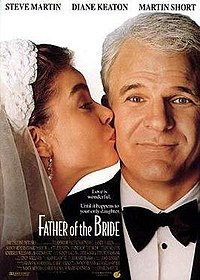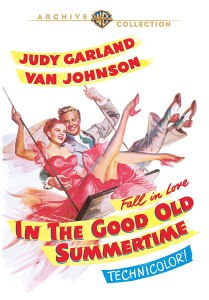The Great Movie Re-Watch
It’s a Wonderful Life (1946)
Director:
Frank Capra
Writer:
Francis Goodrich
Albert Hackett
Frank Capra
Jo Swerling
Starring:
James Stewart
Donna Reed
Lionel Barrymore
Thomas Mitchell
Henry Travers
Blurb:
An angel is sent from Heaven to help a desperately frustrated businessman by showing him what life would have been like if he had never existed.
Thoughts:
It’s a Wonderful Life is in my top ten favorite movies. Probably in my top five, actually. I’ve already written a blog post about it, so I will try not to gush about it too much.
When It’s a Wonderful Life was first released, it was a flop. It didn’t make back what was spent, and people started to doubt Frank Capra’s abilities. It ended up falling partially out of copyright because it was forgotten. It wasn’t until TV broadcasts were looking for something to air that it became the Christmas classic it is today. It bombed and is now considered to be one of the greatest films of all time. Amazing.
George wants to leave Bedford Falls so bad. Everyone knows it too. His friends, even old man Potter, his arch-enemy, know he wants to go, but he can’t. These people, people he knows and loves, could not take care of themselves as well as he could take care of them. So he stays. He gives up everything he wants in his life. College, travel, being an architect or engineer, everything. He gives it up because he knows that it’s best for everyone else
If anyone ever complains about goody-two-shoes characters being boring to watch because their decisions are easy to make, point them to this movie.
You see George’s struggle. You see him break when it finally pushes him too far. For the first time in the movie, he’s not thinking clearly, and he’s about to make a stupid decision that would end up not benefitting his family at all. The movie gets dark, but ultimately he learns how to be happy with his life and stop yearning for the life he doesn’t have. He’s not settling. He’s still ambitious and has hopes and desires. He’s no longer thinking about the life he could have had if he hadn’t cared about anyone else, though. Now that is a fantastic Christmas gift.
Another thing I love about It’s a Wonderful Life is the socialist undertones. Mr. Potter is the perfect embodiment of capitalism, and the Building and Loan is socialism. The speech that George gives is beautiful.
“You, you said that they — What’d you say just a minute ago? They had to wait and save their money before they even thought of a decent home. Wait? Wait for what?! Until their children grow up and leave them? Until they’re so old and broken-down that — You know how long it takes a workin’ man to save five thousand dollars? Just remember this, Mr. Potter, that this rabble you’re talking about, they do most of the working and paying and living and dying in this community. Well, is it too much to have them work and pay and live and die in a couple of decent rooms and a bath?”
You can’t get better than that.
Bonus: The Lost Ending of It’s a Wonderful Life from SNL









